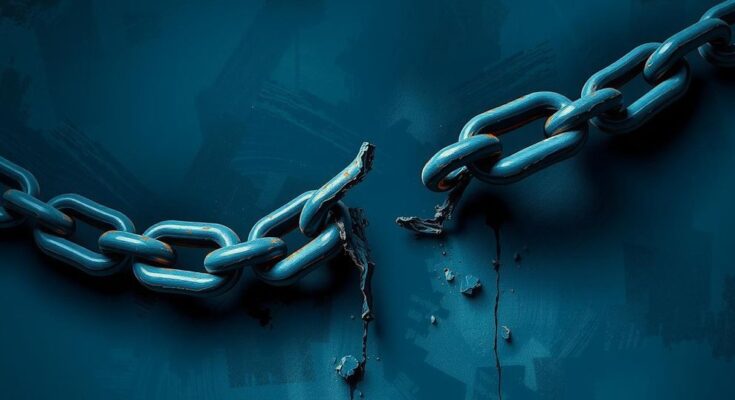In a recent appeal, Israeli Prime Minister Netanyahu urged Iranian citizens to seize the opportunity for regime change amid ongoing military operations targeting Iran’s nuclear capabilities. The potential for dissent among minority groups may play a critical role in challenging the regime, especially following the unrest sparked by Mahsa Amini’s death. Netanyahu emphasized that Israel’s fight is against the regime, not the Iranian people, encouraging voices for freedom and change.
In a striking moment following recent Israeli military actions against Iran, Prime Minister Benjamin Netanyahu extended a direct message to the Iranian populace. “This is your opportunity to stand up [to the regime],” he proclaimed, urging citizens to consider the current political climate ripe for change. Netanyahu’s remarks come amidst what he describes as some of the most significant military operations ever designed to counter Iran’s nuclear ambitions and ensure Israel’s security.
The backdrop of Netanyahu’s address is grim: Israel has been actively targeting key Iranian military sites to counter perceived threats against its sovereignty. He emphasized that, by weakening the Iranian regime, the door could swing open for dissenters within Iran. Notably, many minority groups, often silenced and oppressed, make up a significant portion of Iran’s demographic landscape, approximately 50%. This has led some analysts to suggest that unity among these groups could be pivotal.
The ongoing internal unrest in Iran has escalated sharply since the tragic death of Mahsa Amini in September 2022. Arrested by the morality police, her suffering ignited widespread protests met with fierce governmental crackdowns. Reports indicate that the Iranian regime remains wary of potential uprisings, having preemptively arrested members of the Ahwazis, a minority group that comprises around 6-8% of Iran’s population. The urgency of such actions indicates fears of simultaneous rebellions amidst the ongoing tensions with Israel.
Yigal Carmon, the President of the Middle East Media Research Institute (MEMRI), noted that the minorities, being more organized militarily, have a crucial role in any potential regime shift. He stated, “A regime change will be supported by many,” adding that a united coalition of these ethnic groups could challenge the regime effectively. This seems increasingly feasible given the regime’s current vulnerabilities.
Other groups, including Kurds and Baloch people, have long histories of resistance against the Iranian authority. With their combined efforts, they too could significantly impact the political landscape. Netanyahu, in his impassioned address, stressed, “It has never been weaker. This is your opportunity to stand up and let your voices be heard.” He reiterated Israel’s position, emphasizing that the struggle is against the regime and not the Iranian people.
He urged citizens to rally for their rights, echoing the rallying cry, “Woman, Life, Freedom.” This remains a call to those who seek change within a regime marked by years of oppression and economic hardship.
Netanyahu’s call to the Iranian people underscores a potential turning point. Amidst a backdrop of military actions against Iran, he encourages citizens to unite against oppression, leveraging their demographic diversity. As unrest protests continue in response to injustices like Amini’s tragic death, anticipation grows regarding the consequences of internal dissent. Minority groups’ organizational strength and desire for change could lead to significant shifts in Iran’s political dynamics. Overall, the situation remains fluid, with both local and geopolitical implications.
Original Source: www.foxnews.com




